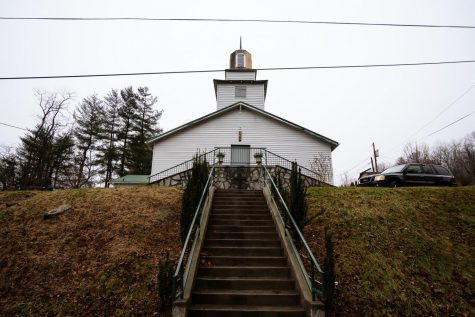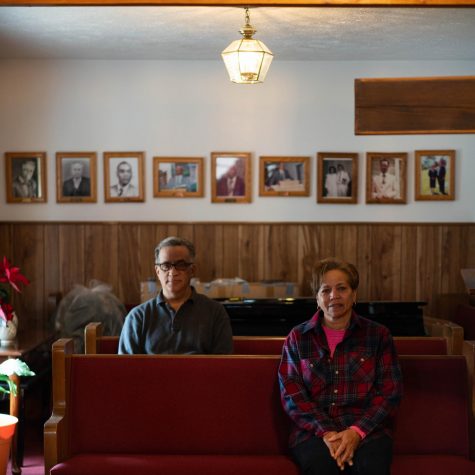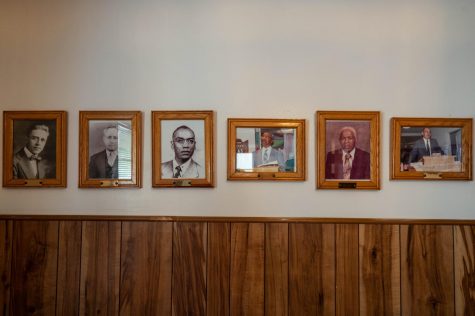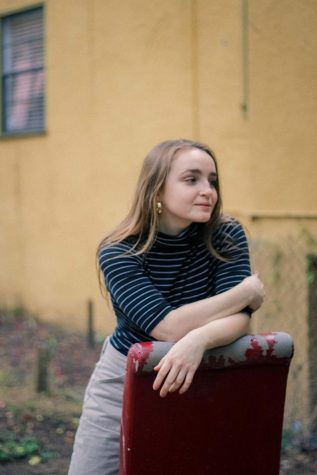Historians preserve the Junaluska community through photos and journal entries
As the history of the Junaluska Heritage Association erodes from public memory, three women have continued to document experiences of the historically black community in Boone as far back as the 1860s. Since before the Civil War, the small community called Junaluska, also called “The Hill,” has endured generations of black history in a predominantly white area of North Carolina.
After celebrating 100 years of duty to Boone in 2018, the Boone Mennonite Brethren Church, which has housed the JHA meetings since 2011, will continue to preserve its history into 2019. JHA historians, Roberta Jackson, Sandy Jackson and Susan Keefe have already facilitated proper recognition for African-Americans who died throughout Junaluska’s history with the installation of a headstone in the Boone City Cemetery in 2017.

The collaboration with the Boone Historic Preservation Commission gave names to more than 75 Junaluska members, among which were military veterans and slaves, according to JHA.
In 2019, three of the association’s historians will continue to research the lineages of the many families who have established lives in Junaluska over the centuries. They hope to finish the lineage project this year. Because family lines within the Junaluska community can be traced at least as far back as the Civil War, the most effective sources for this research are family journals, photos and even death records.
Junaluska and the church received Roberta Jackson and her sister Sandy Jackson when they were both teenagers. During those times, today’s small town seemed even smaller still in the 1950s. Into their teens, Roberta Jackson and Sandy Jackson were sheltered from the segregated town of Boone that moved below the historically African-American community.
During Roberta Jackson’s teenage years, her mother especially attempted to shelter her from the reality of racism and prejudice, Roberta Jackson said.
Sandy Jackson, however, gleaned stories from her grandfather about segregation and violence against blacks in the rural small town.

When JHA formed in 2011, Sandy Jackson became the main historian for the group. She was originally inspired by the memories of her childhood, those she loved and her grandfather’s stories. Sandy Jackson made it a goal to educate the people of Boone and to illuminate the stories that were never told.
“The more I dig and continue to find out new things about the history of this area, the more I’m encouraged to dig deeper,” Sandy Jackson said.
Susan Keefe, who retired from her position as a history professor at App State, is working on a book that consists of interviews from various members of the Junaluska community and their experiences in Boone. For testimonies from ancestors living in the 19th century, Keefe consulted photos and journal entries taken from family members who preserved the writings of their predecessors.

“I poured over miles of microfilm and years and years of written history that came directly from the pens of those who lived over 100 years ago,” Keefe said.
Preserving the history of the community’s past is JHA’s main goal, Roberta Jackson said.
“It will continue to allow our family to be self-sustaining, it will carry our stories even after we no longer can,” Roberta Jackson said. “I want our grandchildren to pass to their grandchildren our stories and to be proud of where they come from and to be even better than we ever were.”
We hope you appreciate this article! Before you move on, our student staff wanted to ask if you would consider supporting The Appalachian's award-winning journalism.
We receive funding from the university, which helps us to compensate our students for the work they do for The Appalachian. However, the bulk of our operational expenses — from printing and website hosting to training and entering our work into competitions — is dependent upon advertising revenue and donations. We cannot exist without the financial and educational support of our fellow departments on campus, our local and regional businesses, and donations of money and time from alumni, parents, subscribers and friends.
Our journalism is produced to serve the public interest, both on campus and within the community. From anywhere in the world, readers can access our paywall-free journalism, through our website, through our email newsletter, and through our social media channels. Our supporters help to keep us editorially independent, user-friendly, and accessible to everyone.
If you can, please consider supporting us with a financial gift from $10. We appreciate your consideration and support of student journalism at Appalachian State University. If you prefer to make a tax-deductible donation, or if you would prefer to make a recurring monthly gift, please give to The Appalachian Student News Fund through the university here: https://www.givecampus.com/campaigns/54088/donations/new?designation_id=faa93386&

Sophomore Communication, Journalism and Sustainable Development major
E-mail: canalha@appstate.edu

Michael Folk • Apr 18, 2019 at 7:32 pm
My family moved from Boone in Dec. 1958, leaving cousins aunts uncles. We returned several times for visits however trips dwindled to funerals which was very distasteful to me. We live in Penna. and the trip takes time. Relatives have in the past come to visit us.
The pictures in the cites I have seen I remember many of these people, and for sure Sandra and Roberta who are my age and shared the school classroom. Hello to them,
With-in the next two months I’m coming to Boone to investigate my family back into the 1850’s to 1900’s. I have pictures and papers that I would like included in these works. Any help I could get with what I’m looking for I would like. Maybe this first contact will bring great benefit for his project and also for my curiosity. Hope to get to meet you. Call me Mike.